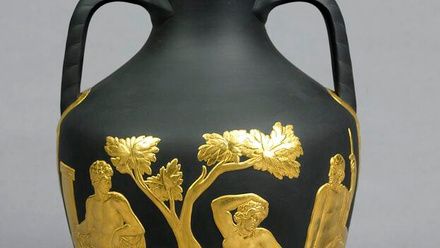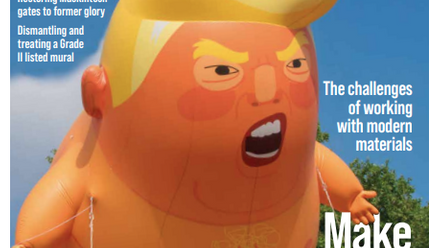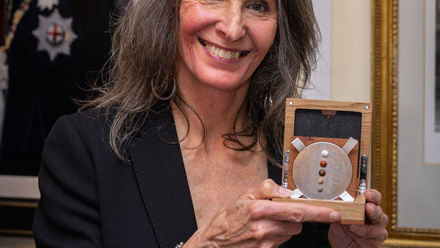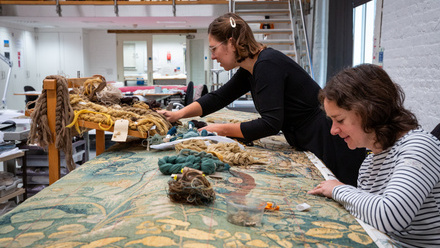In May, Icon presented the first ever Marsh Awards for Conservation and Restoration of Objects and Collections, in partnership with the Marsh Charitable Trust.
We chatted with Marina Herriges, winner of the Early Career Conservator Award, about her winning project.
Marsh Award: Early Career Conservator
Winner: Marina Herriges, Conservator, Icon Pathway member
Project role: Co-Investigator/Research Assistant, University of Glasgow
Project outline: Embedding environmental sustainability for active learning and student engagement in textile conservation
What does it mean to you to win this award?
It is gratifying to receive this award; I feel very honoured.
This project is very important to me, personally and professionally, it is really an interest that came from my personal life, and I decided to work on it in conservation because I believe conservators have a lot to contribute to this agenda.
I am also very appreciative of Karen Thompson’s generosity in nominating me. Karen trusted my research interests and skills since day one; I am very thankful for her support.
You’ve been nominated for your work with sustainability in textile conservation. What’s the value of promoting sustainability in conservation?
I believe sustainability is important across all sectors, not only in conservation. Sustainable development needs to be seen as the way forward. We must act now.
Conservation as an interdisciplinary profession has the tools required to promote sustainable development and change its practice to a sustainably one.
Also, we are all problem solvers. This places us in a good position to find solutions, change our field and therefore contribute to solving the climate crisis - perhaps the most significant challenge we face in society at the moment. By changing our practices and raising awareness, we can also reach people outside the profession and make an impact in the wider society too.
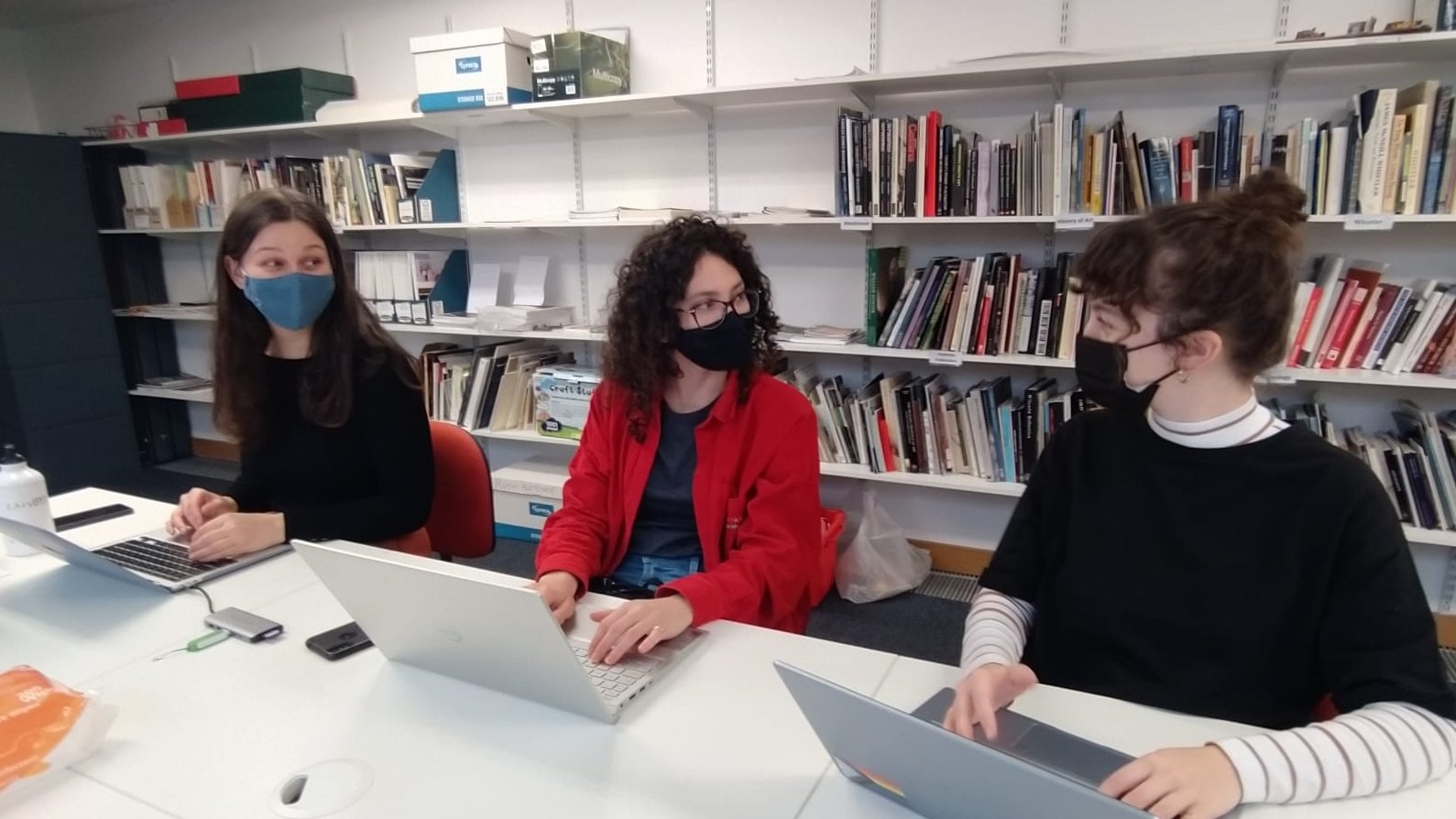
Your work with sustainability had an impact on the MPhil Textile Conservation programme at the University of Glasgow. What are some of the ways in which the programme has embedded sustainability?
The first thing was providing space for discussion and hearing what everyone had to say. I think just this space was already great to enable students to feel their voices were heard.
The acknowledgment that everyone had something to contribute to the project since day one was also another good step.
Following this, we encouraged students to engage with subjects that they enjoy and look at ways to make these procedures more sustainable. Some students engaged with labs being more sustainable, others look at products that we use in conservation. We also have a group of students who looked at sustainable protocols.
It was rewarding; just by bringing the subject to discussions more often, students and teaching staff changed their views and attitudes toward the subject. It changed everyone’s mindset.
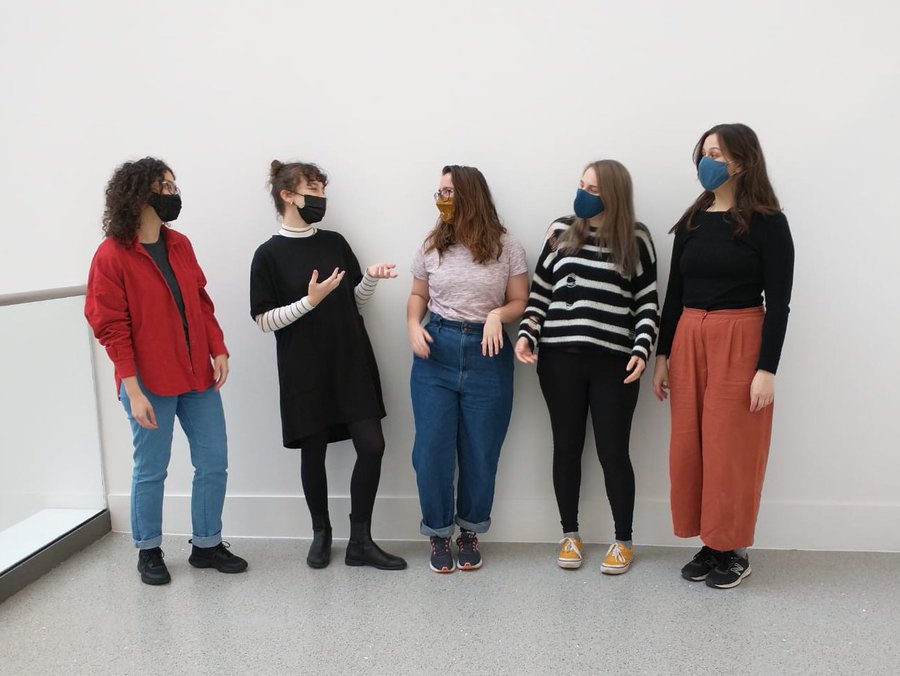
How do you think we can take sustainable practices into the wider profession?
Once again, providing a space to talk and share information. This is a multidimensional topic, and some people feel overwhelmed by the idea of talking about the climate crisis and all related topics. Therefore, I think if we all discuss it more, share resources and research, it is already very beneficial for the profession.
Another way to implement more sustainable actions is to create groups in the workplace where everyone can work together. Climate change and sustainability are not something that will be solved by solo individuals, we all need to be involved.
What advice do you have for someone just starting out?
Find good and reliable sources of information. Nowadays we have “sustainable gurus” that often speak too loudly and sometimes do not provide necessarily good information.
Find information from different sources to discover various perspectives on the subject – there are many professionals in conservation and related areas doing an excellent job.
Find what is the challenge you are trying to address. Scrutinize this information. Discuss with your peers. Share information. It is a challenging topic, but I do think it is rewarding to work and promote sustainable development therefore finding ways for our planet to overcome this crisis.

